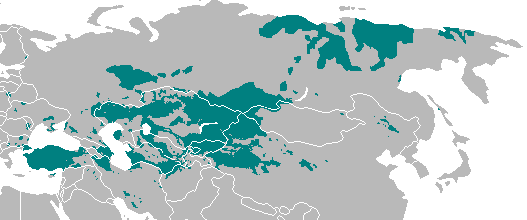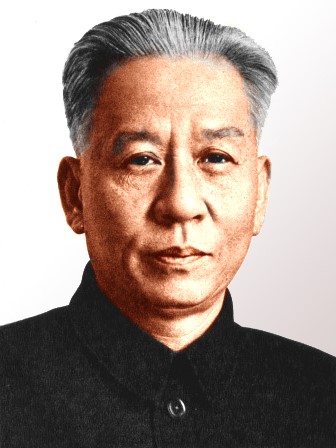|
Cyrillisation In The Soviet Union
In the USSR, cyrillisation or cyrillization () was a campaign from the late 1930s to the 1950s to replace official writing systems based on Latin script (such as Yanalif or the Unified Northern Alphabet), which had been introduced during the previous latinization program, with new alphabets based on Cyrillic. History Background The cyrillization program cannot be separated from the changing views of the Soviet Union's leadership under Joseph Stalin in the mid-1930s. When the leader began to rule in absolute terms, he was worried about the appearance of parties that could become his enemies, especially from outside, such as Turkey (which borders the Azerbaijan SSR). The country had "brothers" in the form of Turkic nations in the Soviet Union (such as Turkmens and Azeris). Not to mention that a number of anti-Soviet emigrants who settled there, for example the Musavat Party from Azerbaijan, had been writing in Turkish (which had Latin letters since 1928) which the Soviets felt ... [...More Info...] [...Related Items...] OR: [Wikipedia] [Google] [Baidu] |
Crimean Tatar Alphabet Janalif-Cyrillic
Crimea ( ) is a peninsula in Eastern Europe, on the northern coast of the Black Sea, almost entirely surrounded by the Black Sea and the smaller Sea of Azov. The Isthmus of Perekop connects the peninsula to Kherson Oblast in mainland Ukraine. To the east, the Crimean Bridge, constructed in 2018, spans the Strait of Kerch, linking the peninsula with Krasnodar Krai in Russia. The Arabat Spit, located to the northeast, is a narrow strip of land that separates the Syvash lagoons from the Sea of Azov. Across the Black Sea to the west lies Romania and to the south is Turkey. The population is 2.4 million, and the largest city is Sevastopol. The region, internationally recognized as part of Ukraine, has been under Russian occupation of Crimea, Russian occupation since 2014. Called the Tauric Peninsula until the early modern period, Crimea has historically been at the boundary between the Classical antiquity, classical world and the Pontic–Caspian steppe, steppe. Greeks in pre-Rom ... [...More Info...] [...Related Items...] OR: [Wikipedia] [Google] [Baidu] |
Turkish Alphabet
The Turkish alphabet () is a Latin-script alphabet used for writing the Turkish language, consisting of 29 letters, seven of which ( Ç, Ğ, I, İ, Ö, Ş and Ü) have been modified from their Latin originals for the phonetic requirements of the language. This alphabet represents modern Turkish pronunciation with a high degree of accuracy and specificity. Mandated in 1928 as part of Atatürk's Reforms, it is the current official alphabet and the latest in a series of distinct alphabets used in different eras. The Turkish alphabet has been the model for the official Latinization of several Turkic languages formerly written in the Arabic or Cyrillic script like Azerbaijani (1991), Turkmen (1993), and recently Kazakh (2021). Letters The following table presents the Turkish letters, the sounds they correspond to in International Phonetic Alphabet and how these can be approximated more or less by an English speaker. Of the 29 letters, eight are vowels ( A, E, I, ... [...More Info...] [...Related Items...] OR: [Wikipedia] [Google] [Baidu] |
Nikolai Baskakov (linguist)
Nikolai Aleksandrovich Baskakov (; 22 March 1905 – 26 August 1996) was a Soviet Turkologist, linguist, and ethnologist. He created a systematization model of the Turkic language family (Baskakov's classification), and studied Turkic-Russian contacts in the 10-11th centuries CE. During 64 years of scientific work (1930-1994), Baskakov published almost 640 works including 32 books. The main area of Baskakov's scientific interests was linguistics, but he also studied folklore and ethnography of the Turkic peoples, and also was a musician and composer. Life Baskakov was born in 1905 in Solvychegodsk in Vologda Governorate (now Arkhangelsk Oblast) in a large family of a district government official. His father came from a family banished in the beginning of the 19th century from Saint Petersburg to the Vologda province, and mother was a daughter of an official and a teacher. In a book about Russian surnames of Turkic origin (1979) Baskakov gives the following comment about his sur ... [...More Info...] [...Related Items...] OR: [Wikipedia] [Google] [Baidu] |
Turkology
Turkology (or Turcology or Turkic studies) is a complex of humanities sciences studying languages, history, literature, folklore, culture, and ethnology of people speaking Turkic languages and the Turkic peoples in chronological and comparative context. That includes ethnic groups from the Sakha, in eastern Siberia, to the Turks in the Balkans and the Gagauz, in Moldova. History Ethnological information on Turkic tribes for the first time was systemized by the 11th-century Turkic philologist Mahmud al-Kashgari in the ''Dīwān ul-Lughat it-Turk'' (Dictionary of Turkic language). Multi-lingual dictionaries were compiled from the late 13th century for the practical application of participants in international trade and political life. One notable such dictionary is the '' Codex Cumanicus'', which contains information for Cuman, Persian, Latin, and German. There are also bilingual dictionaries for Kipchak and Armenian. as well as Kipchak and Russian. In the Middle Ages, Tu ... [...More Info...] [...Related Items...] OR: [Wikipedia] [Google] [Baidu] |
CPSU
The Communist Party of the Soviet Union (CPSU),. Abbreviated in Russian as КПСС, ''KPSS''. at some points known as the Russian Communist Party (RCP), All-Union Communist Party and Bolshevik Party, and sometimes referred to as the Soviet Communist Party (SCP), was the founding and ruling political party of the Soviet Union. The CPSU was the One-party state, sole governing party of the Soviet Union until 1990 when the Congress of People's Deputies of the Soviet Union, Congress of People's Deputies modified Article 6 of the Soviet Constitution, Article 6 of the 1977 Soviet Constitution, which had previously granted the CPSU a monopoly over the political system. The party's main ideology was Marxism–Leninism. The party was outlawed under Russian President Boris Yeltsin's decree on 6 November 1991, citing the 1991 Soviet coup attempt as a reason. The party started in 1898 as part of the Russian Social Democratic Labour Party. In 1903, that party split into a Menshevik ("mino ... [...More Info...] [...Related Items...] OR: [Wikipedia] [Google] [Baidu] |
Semyon Dimanstein
Semyon (Shimen) Markovich Dimanshtein () (21 March 1886 – 25 August 1938) was a Soviet Union, Soviet state official, publisher, and leading theorist of national issues in the USSR, and one of the founders of the Soviet Oriental studies. He was considered by the Soviet government to be a representative of Soviet Jews. Early years Dimanstein was born in Sebezh, Vitebsk Governorate (today Pskov Oblast) in a poor Lithuanian Jews, Litvak family. His father, Mordechai, was a tinsmith. From age 12, he studied at the yeshivas of Telshe Yeshiva, Telz, Yeshivas Knesses Yisrael (Slabodka), Slobodka, and Lubavitch. He moved to Vilna in 1903, and was ordained there as a rabbi, receiving smicha from Rabbi of Lodz, Rabbi Shlomo HaKohen (Vilna), Shlomo HaKohen, and Rabbi Chaim Ozer Grodzinski of Vilna. He suffered from poverty and homelessness, and soon abandoned his religious upbringing in favor of revolutionary activities. Pre-Revolution Socialist activities In 1904 Dimanstein became ... [...More Info...] [...Related Items...] OR: [Wikipedia] [Google] [Baidu] |
Proletarian Internationalism
Proletarian internationalism, sometimes referred to as international socialism, is the perception of all proletarian revolutions as being part of a single global class struggle rather than separate localized events. It is based on the theory that capitalism is a world-system and therefore the working classes of all nations must act in concert if they are to replace it with communism. Proletarian internationalism was strongly embraced by the first communist party, the Communist League, as exercised through its slogan "Workers of the world, unite!, Proletarians of all countries, unite!", later popularized as "Workers of the world, unite!" in English literature. This notion was also embraced by the Bolshevik Party. After the formation of the Soviet Union, Marxist proponents of internationalism suggested that country could be used as a "homeland of communism" from which revolution could be spread around the globe. Though world revolution continued to figure prominently in Soviet rhe ... [...More Info...] [...Related Items...] OR: [Wikipedia] [Google] [Baidu] |
Bourgeois Nationalism
In Marxist theory, bourgeois nationalism is the ideology of the ruling capitalist class which aims to overcome class antagonism between proletariat and bourgeoisie by appealing to national unity. It is seen as a distraction from engaging in class struggle and an attempt to impose interests of capitalists on the proletariat by constructing capitalist interests as "national interests". Internationally, it aims to create antagonism between workers of different nations and serves as a divide-and-conquer strategy. The bourgeois nationalism is contrasted with left-wing nationalism and proletarian internationalism. Usage Soviet Union After the October Revolution, the Bolshevik government based its nationalities policy ( korenization) on the principles of Marxism. According to these principles, all nations should disappear with time, and nationalism was considered a bourgeois ideology. By the mid-1930s these policies were replaced with more extreme assimilationist and Russificat ... [...More Info...] [...Related Items...] OR: [Wikipedia] [Google] [Baidu] |
Homo Sovieticus
''Homo Sovieticus'' (Dog Latin, cod Latin for 'Soviet Man') is an Anti-communism, anti-communist pejorative term coined to describe the average conformism, conformist individual in the Soviet Union and other Eastern Bloc countries. Popularized by Soviet writer Aleksandr Zinovyev, it gained negative connotations and represented the perceived outcome of Soviet policies. Characteristics of ''Homo Sovieticus'' included indifference to work results, lack of initiative, indifference to common property, chauvinism, obedience to government, and a tendency to drink heavily. The term reflected a departure from the idealized "New Soviet man" concept promoted by the Soviet system. Historians and sociologists, such as Michel Heller and Yuri Levada, defined ''Homo Sovieticus'' by traits like indifference, theft, lack of initiative, and submission to authority. The concept sparked debates about its empirical basis and continued existence in post-Soviet Russia, with opinions varying on whether it ... [...More Info...] [...Related Items...] OR: [Wikipedia] [Google] [Baidu] |
Japhetic Theory
In linguistics, the Japhetic hypothesis or Japhetic theory of Soviet linguist Nikolay Yakovlevich Marr (1864–1934) postulated that the Kartvelian languages of the Caucasus area are related to the Semitic languages of the Middle East. The hypothesis gained favor in the 1930s and 1940s among some Soviet linguists for ideological reasons as it was thought to represent " proletarian science" as opposed to "bourgeois science", but also had numerous detractors, most notably Arnold Chikobava. The hypothesis finally fell into disrepute and was largely discarded after 1950, when Joseph Stalin published a scathing critique of the views of Marr and his supporters, titled "Marxism and Problems of Linguistics". Term Marr adopted the term "Japhetic" from Japheth, the name of one of the sons of Noah, in order to characterise his hypothesis that the Kartvelian languages of the Caucasus area were related to the Semitic languages of the Middle East (named after Shem, Japheth's brother). Mar ... [...More Info...] [...Related Items...] OR: [Wikipedia] [Google] [Baidu] |
Communist Party Of The Soviet Union
The Communist Party of the Soviet Union (CPSU),. Abbreviated in Russian as КПСС, ''KPSS''. at some points known as the Russian Communist Party (RCP), All-Union Communist Party and Bolshevik Party, and sometimes referred to as the Soviet Communist Party (SCP), was the founding and ruling political party of the Soviet Union. The CPSU was the One-party state, sole governing party of the Soviet Union until 1990 when the Congress of People's Deputies of the Soviet Union, Congress of People's Deputies modified Article 6 of the Soviet Constitution, Article 6 of the 1977 Soviet Constitution, which had previously granted the CPSU a monopoly over the political system. The party's main ideology was Marxism–Leninism. The party was outlawed under Russian President Boris Yeltsin's decree on 6 November 1991, citing the 1991 Soviet coup attempt as a reason. The party started in 1898 as part of the Russian Social Democratic Labour Party. In 1903, that party split into a Menshevik ("mino ... [...More Info...] [...Related Items...] OR: [Wikipedia] [Google] [Baidu] |
Russian Language
Russian is an East Slavic languages, East Slavic language belonging to the Balto-Slavic languages, Balto-Slavic branch of the Indo-European languages, Indo-European language family. It is one of the four extant East Slavic languages, and is the native language of the Russians. It was the ''de facto'' and ''de jure'' De facto#National languages, official language of the former Soviet Union.1977 Soviet Constitution, Constitution and Fundamental Law of the Union of Soviet Socialist Republics, 1977: Section II, Chapter 6, Article 36 Russian has remained an official language of the Russia, Russian Federation, Belarus, Kazakhstan, Kyrgyzstan, and Tajikistan, and is still commonly used as a lingua franca in Ukraine, Moldova, the Caucasus, Central Asia, and to a lesser extent in the Baltic states and Russian language in Israel, Israel. Russian has over 253 million total speakers worldwide. It is the List of languages by number of speakers in Europe, most spoken native language in Eur ... [...More Info...] [...Related Items...] OR: [Wikipedia] [Google] [Baidu] |






